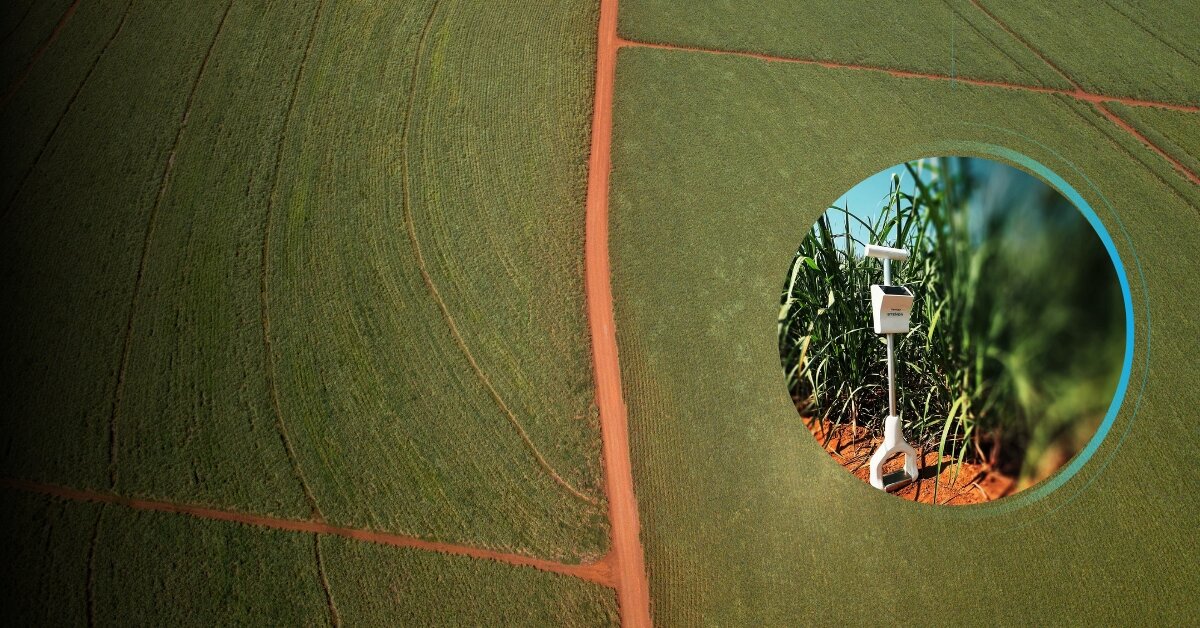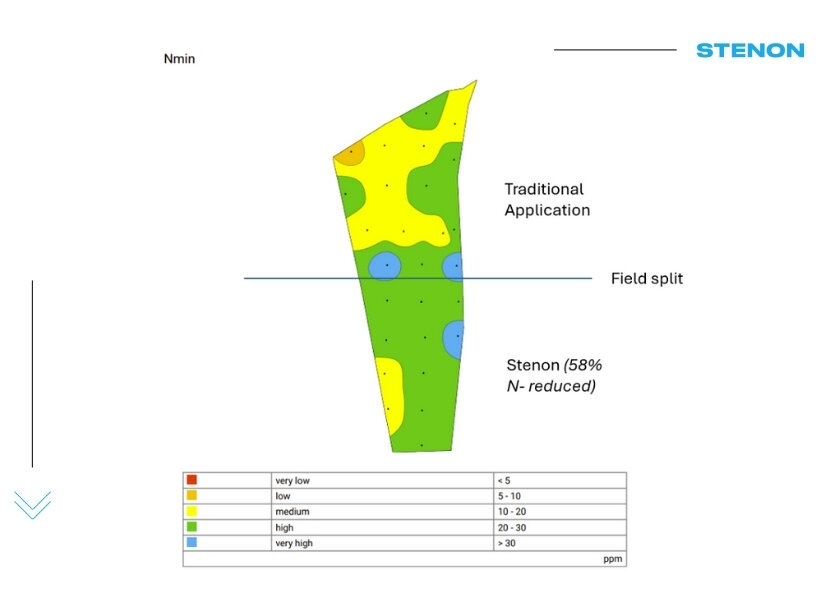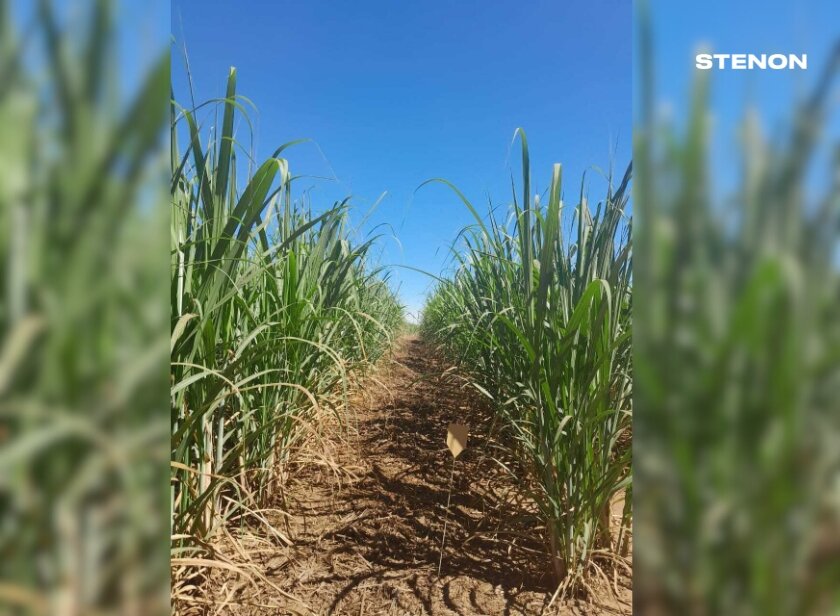
Case Study: Optimizing Nitrogen Use in Sugarcane Farming with Stenon in Brazil

Introduction
Fazenda Nossa Senhora da Conceição, an 400-hectare sugarcane farm in São Manuel, Brazil, is known for its exceptional soil and crop management, consistently achieving harvests of up to 120 tons per hectare—well above industry averages. In collaboration with Stenon, the farm implemented a case study to optimize fertilizer application and improve crop health using real-time soil analysis.
As part of its commitment to demonstrating the impact of real-time soil data, Stenon continuously runs case studies in various regions and for different crops. Each project follows a structured approach: first, developing a customized methodology and experimental design; second, implementing and monitoring results throughout the season; and finally, evaluating key success factors—fertilizer savings, crop health, and yield performance.
This case study in Brazil follows the same approach. The first phase, presented in this article, focuses on the cost savings achieved through optimized nitrogen use and the positive impact on crop health. As the sugarcane harvest takes place later in the year, the final assessment of yield performance will be covered in the second phase of the study.
Challenge
The primary goal of this case study was to optimize nitrogen fertilization while maintaining high crop productivity. Traditionally, sugarcane farmers rely on standard fertilization rates without real-time data on soil nutrient levels, leading to potential overuse of fertilizers. Given the rising costs of nitrogen-based fertilizers and their environmental impact, Fazenda Nossa Senhora da Conceição sought a solution that could reduce input costs while ensuring optimal crop health and yield.
Solution
Stenon introduced its real-time soil analysis technology to the farm, allowing for precise measurement of nitrogen content in the soil. In June 2024, Stenon’s team met with the farm owner to discuss the technology’s benefits. The farm agreed to conduct a trial on 100 hectares after the harvest, coinciding with the fertilization period.
The Stenon service was deployed in September 2024, revealing an average nitrogen content of approximately 45 kg/ha. Based on this data, a side-by-side field trial was designed:
A 5 hectare section received a reduced NPK 20-00-30 application, cutting the nitrogen dosage by 46 kg/ha (a 58% reduction).
The remaining hectares followed the farm’s conventional fertilization practice as a control.

Results
Nitrogen Savings
The optimized fertilization approach led to a reduction of 230 kg/ha in NPK application, saving the farm approximately R$600.00 per hectare based on market price of R$2,800/ton for NPK.
Field Evaluation
In January 2025, Stenon conducted a standard evaluation with the farm manager to assess crop development in both the treated and control fields.
The findings were clear:
✅ The crop in the Stenon-treated area was indistinguishable from the conventionally fertilized field.
✅ The plants remained healthy and vigorous, confirming that reduced nitrogen application had no negative impact on growth.
✅ No additional fertilizer application was required, reinforcing the efficiency of Stenon’s real-time soil analysis in optimizing inputs.

Customer Feedback
The farm manager expressed satisfaction with the results, highlighting the cost savings and the potential for maintaining—or even increasing—yield with less nitrogen. He also noted that beyond direct savings, Stenon’s technology streamlined farm operations by reducing labor and time spent on fertilization, further enhancing efficiency.
Conclusion
This case study at Fazenda Nossa Senhora da Conceição demonstrates the unbeaten effectiveness of Stenon’s technology in optimizing nitrogen use while maintaining crop health. The savings achieved in fertilizer costs and labor efficiency underscore the transformative impact of real-time soil data on farm decision-making.
As the sugarcane harvest has yet to take place, this study’s second phase will provide final yield insights later in the year. The results so far highlight the potential for more efficient, data-driven fertilization strategies that reduce input costs without compromising crop performance.
It’s great to see the tangible benefits that our technology brings to farmers. This case study in Brazil reinforces our mission to empower growers with real-time data for smarter, more sustainable farming. By reducing input costs while maintaining productivity, we help farmers maximize efficiency and profitability. We look forward to continuing our work with innovative agricultural businesses worldwide.